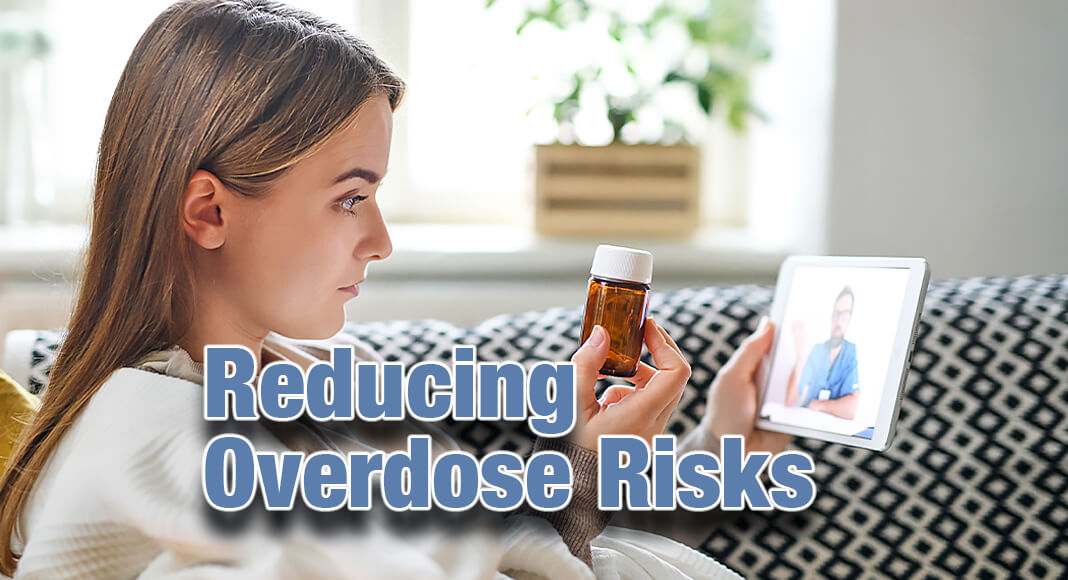
Mega Doctor News
CDC – The expansion of telehealth services during the COVID-19 pandemic was associated with individuals staying in treatment longer and reducing their risk of medically treated overdose, according to a new study.
Published today in JAMA Psychiatry, this study was a collaborative effort led by researchers at the National Center for Injury Prevention and Control, a part of the Centers for Disease Control and Prevention (CDC); the National Institute on Drug Abuse (NIDA), part of the National Institutes of Health (NIH); and the Centers for Medicare & Medicaid Services (CMS).
In this national study, researchers analyzed data among 175,778 Medicare beneficiaries from September 2018 to February 2021. The analysis examined the receipt of telehealth services, medications for opioid use disorder (MOUD), and experiencing a medically treated overdose among individuals with opioid use disorder (OUD) starting a new episode of care prior to the pandemic compared to those during the pandemic.
“Strategies to increase access to care and MOUD receipt and retention are urgently needed, and the results of this study add to the growing research documenting the benefits of expanding the use of telehealth services for people with OUD,” said lead author Christopher M. Jones, Pharm.D., Dr.P.H., acting director of the National Center for Injury Prevention and Control at the CDC. “The findings from this collaborative study also highlight the importance of working across agencies to identify successful approaches to address the escalating overdose crisis.”
Among the key findings from this study:
- Data analyzed from two groups of Medicare beneficiaries, one group initiating an episode of OUD-related care before the COVID-19 pandemic and one initiating care during the COVID-19 pandemic, and found that those in the COVID-19 pandemic group were more likely to receive OUD-related telehealth services compared to the pre-pandemic group (19.6% compared to 0.6%) and were more likely to receive MOUD (12.6% compared to 10.8%).
- Among the COVID-19 pandemic group, receipt of OUD-related telehealth services was associated with significantly better MOUD treatment retention and lower risk of medically treated overdose compared to those not receiving OUD-related telehealth services, lending support for permanently implementing access to telehealth services.
“The expansion of telehealth services for people with substance use disorders during the pandemic has helped to address barriers to accessing medical care for addiction throughout the country that have long existed,” said Wilson Compton, M.D., M.P.E, deputy director of the National Institute on Drug Abuse and senior author of the study. “Telehealth is a valuable service and when coupled with medications for opioid use disorder can be lifesaving. This study adds to the evidence showing that expanded access to these services could have a longer-term positive impact if continued.”
Although the study did find that receiving OUD-related telehealth services was generally associated with beneficial outcomes, the study also determined some groups were less likely to receive these services, including non-Hispanic black persons and those living in the South. These outcomes underscore the need for future efforts to focus on eliminating the digital divide and reducing underlying inequities in access to care and services.
“The COVID-19 pandemic was an unexpected shock to the US healthcare system, which consequently offered a unique opportunity to investigate the impact of healthcare delivery methods on health outcomes among those who were newly diagnosed with OUD. The findings showed that telehealth improved the receipt and retention of MOUD, suggesting that this method of healthcare delivery may address common barriers to OUD-related treatment such as transportation and perceived stigma associated with OUD,” said lead analyst Carla Shoff, Ph.D., social science research analyst at CMS.
This study serves as a supportive resource towards maintaining access to telehealth services for patients with OUD as it demonstrates that Medicare beneficiaries and providers used the new flexibilities related to telehealth services during the COVID-19 pandemic and that these services were associated with positive impacts on patient outcomes such as MOUD treatment receipt, retention, and risk for medically treated overdose.
Find Treatment for Substance Use Disorder, including Opioid Use Disorder
If you or someone close to you needs help for a substance use disorder, talk to your doctor or call SAMHSA’s National Helpline at 1-800-662-HELP or go to SAMHSA’s Behavioral Health Treatment Services
Additional Resources:
- Opioid Treatment Program Directory
- Decisions in Recovery: Treatment for Opioid Use Disorder (Handbook)
If you have questions about any medicines, call the U.S. Department of Health and Human Services Poison








